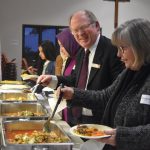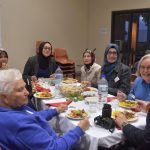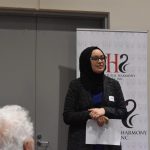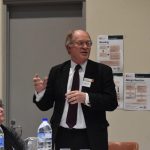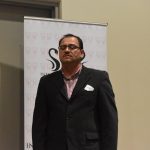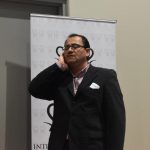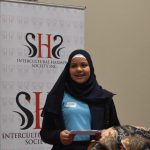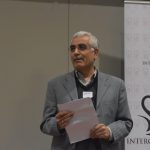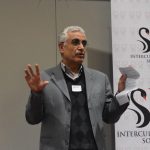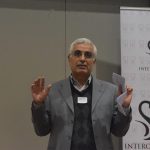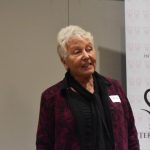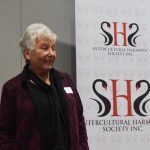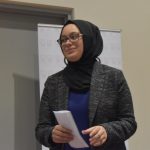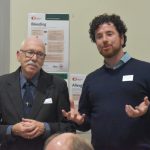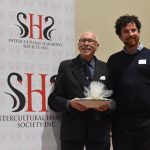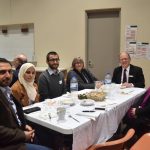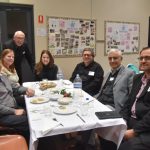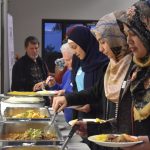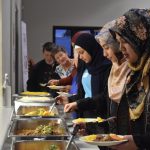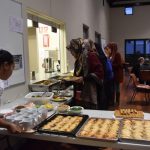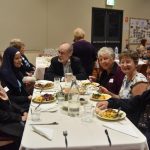The Uniting Church WA Ecumenical Affairs Commission hosted an Iftar dinner on Saturday 9 June at St Peter and Emmaus Church in Joondanna, with members of the Muslim community in Perth, through the Intercultural Harmony Society. The evening was a fantastic opportunity for members of the Christian and Islamic faiths to come together and share a meal, conversation and some of the common aspects of the two faiths.
This year, Ramadan is held from Wednesday 16 May to Thursday 14 June. During this time, many Muslims fast from dawn to sunset as part of their spiritual reflection. Fasting during Ramadan is a time of discipline and personal reflection on time with God. The Iftar dinner is the breaking of the fast, held at sunset each day during Ramadan, beginning with a call to prayer. Iftar dinners are often spent with friends, family and community, making it a great time to share together with members of the Uniting Church WA.
Rev David de Kock, General Secretary of the Uniting Church WA, welcomed guests before Ismail Yildiz recited the call to prayer. After the meal, verses were read from the Bible and the Quran, followed by a reflection from Saliha Yildiz, year 8 student at Fountain College, on what participating in Ramadan means to her.
“Ramadan comes with many blessings,” she said. “Fasting also comes with many benefits, especially when we’re about to break our fast because we then realise the value of food; how precious it is to drink water and have a plate of food ready for you everyday.
“Ramadan is one of the best times of the year. It is a holy month that brings us together and allows Muslims to celebrate this month with its many blessings.”
Dr Salih Yucel, from the Islamic Sciences and Researches Academy Australia, spoke about the importance of dialogue and solidarity between people of different faiths.
“Solidarity should not be just among some people, it should be of all people,” he said.
“I think dialogue will minimise the prejudices between cultures and faiths.
“There are three major common enemies; one is ignorance, the second is poverty, and the third is disunity. To overcome these, dialogue and solidarity are necessary.”
Rev Marie Wilson, member of the Uniting Church WA Ecumenical Affairs Commission, said she hoped the relationship between the Uniting Church WA and the Intercultural Harmony Society will continue to grow.
“We hope that we can continue this dialogue and get to know each other and broaden it into the future,” she said.
Follow the Intercultural Harmony Society on Facebook here.
Heather Dowling

